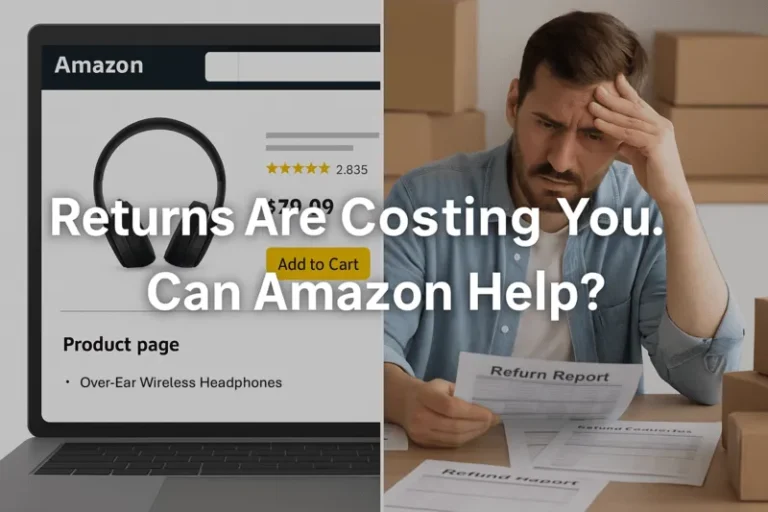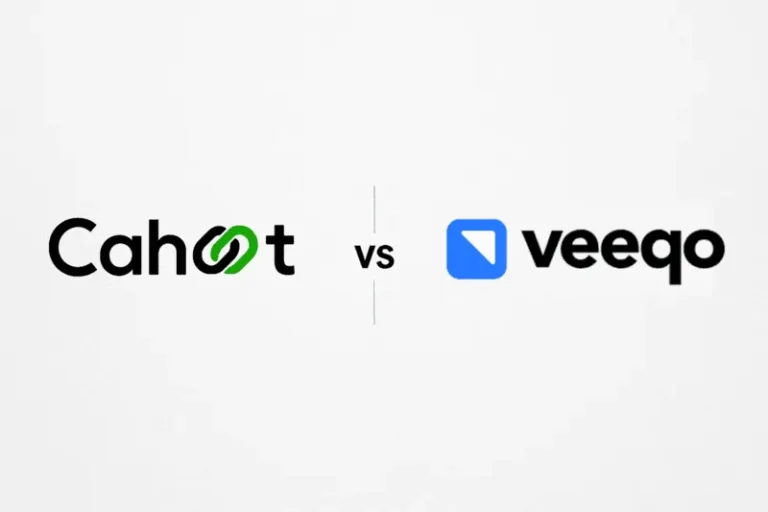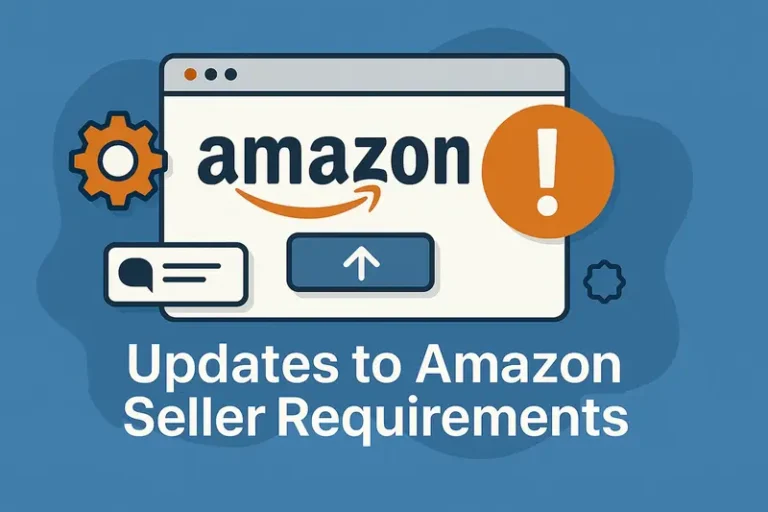Understanding Amazon Product Safety: FBA Rules for Third-Party Sellers

Last updated on March 10, 2025

The U.S. Consumer Product Safety Commission (CPSC) has taken decisive action against Amazon regarding hazardous and defective products sold through its platform. In a unanimous decision, the CPSC ruled that Amazon is a “distributor” under the Consumer Product Safety Act (CPSA), thereby making it legally responsible for defective and/or dangerous items sold by third-party Sellers via its Fulfilled by Amazon (FBA) service. Amazon must notify purchasers and the public about the hazards, offer refunds or replacements, and take remedial actions to remove the dangerous products from consumers’ homes (recalls).
This ruling affects over 400,000 potentially dangerous products, including malfunctioning carbon monoxide detectors, unsafe hairdryers, and children’s sleepwear, violating flammability standards.
What it Means for Third-Party (3P) Sellers
Amazon will not want to be held responsible for any damages caused by products fulfilled by FBA nor the subsequent lawsuits and claims filed against them. Amazon has strengthened its stance on product safety and guidelines.
This shift highlights the importance for sellers addressing product safety issues to ensure compliance and protect consumers.
Expect a mass cleansing of the product catalog, which can be deleterious for Sellers of such products. Still, this shift could benefit Sellers who already comply with safety regulations, as non-compliant competitors might face removal, improving the marketplace’s overall safety, trustworthiness, and profitability. However, it also means that getting new products vetted and approved for sale on the marketplace could get more complicated and time-consuming. Carriers such as UPS, FedEx, and USPS have issued new and updated guidelines on hazmat shipping.
Product Safety on Amazon
Amazon takes product safety seriously and has implemented various measures to ensure that products sold on its platform meet safety standards. The company works closely with the Consumer Product Safety Commission (CPSC) to identify and remove unsafe products from its platform. Amazon also requires third-party sellers to comply with product safety regulations and provides them with resources and tools to help them meet these requirements.
Amazon’s product safety team reviews products for compliance with safety standards and regulations, and the company uses machine learning algorithms to detect and prevent the sale of unsafe products. Amazon also provides customers with information about product safety and recalls, and offers a full refund or replacement for products that are found to be defective or unsafe.
By prioritizing product safety, Amazon aims to create a secure shopping environment for consumers while ensuring that third-party sellers are aware of and adhere to necessary safety standards. This collaborative effort between Amazon, the CPSC, and sellers helps maintain the integrity and trustworthiness of the marketplace.
Slash Your Fulfillment Costs by Up to 30%
Cut shipping expenses by 30% and boost profit with Cahoot's AI-optimized fulfillment services and modern tech —no overheads and no humans required!
I'm Interested in Saving Time and MoneyThe Rub
If a Seller’s products pose safety risks, Amazon may swiftly remove them from the marketplace and halt sales. The enforcement of such policies could hurt third-party Sellers who might unknowingly sell non-compliant products, leading to loss of revenue and damaged reputation.
Amazon already has an Unsuitable Inventory Policy that aims to crack down on items considered unsafe, illegal, or otherwise unsuitable for sale on the Amazon platform to protect customers’ safety and maintain trust. This new action by the CPSC is a natural extension of Amazon’s existing philosophy, but making it mandatory rather than simply accepting that Amazon’s self-imposed and self-regulated policy is sufficient to protect consumers from dangerous goods. The Unsuitable Inventory Policy has recently impacted hundreds, possibly thousands of FBA Sellers. Seller Accounts have been deactivated, and Amazon seized and/or disposed of much of the inventory, taking a guilty-until proven-innocent approach. Without the inventory in hand, these Sellers aren’t able to sell on non-Amazon channels, effectively destroying businesses. For Sellers knowingly violating the FBA policies, that’s the risk they took. For Sellers forced into insolvency through no fault of their own, it’s scary to appreciate how much power Amazon has and how little recourse Sellers have.
Seller Agreements Will Evolve
Sellers have received more explicit guidelines on product safety requirements and recall procedures, ensuring they know exactly what standards they must meet to avoid penalties or product removal.
Modernizing the product recall process enhances consumer safety and ensures timely communication of safety hazards.
Perhaps more importantly, Amazon may raise fees for storage, fulfillment, and compliance management to offset the cost of stricter safety oversight. Sellers using the FBA service could see higher operating costs as Amazon enforces more rigorous processes. Smaller Sellers might struggle with the increased compliance costs and operational burdens, potentially risking their livelihoods.
Have a Plan to Mitigate Risk
To be unequivocally trusted by consumers and avoid unscrupulous activity, Amazon has historically taken a shoot-first and ask-questions-later approach to anything that could damage its customer relationship. This allows Amazon to arrest harmful activity while investigating situations and resolutions implemented.
Amazon’s commitment to recalls and product safety ensures that consumers are protected from hazardous products. While a reasonable strategy for consumers, it can be brutal to the business health of brands and resellers selling compliant products. To ensure business continuity, Sellers should have alternative fulfillment strategies in place, even if dormant, that can help mitigate these risks. This new ruling does not govern seller-fulfilled orders because Amazon is not the ‘distributor’ for non-FBA fulfillments.
One example would be to have the warehouse infrastructure, inventory, and staff available that can take over the fulfillment of Amazon orders in a pinch (it is this author’s opinion that ALL Amazon 3P Sellers should be selling FBM, Fulfilled by Merchant, aka MFN, Merchant Fulfillment Network because it increases sales by increasing discoverability of products).
If in-house operations are not feasible, partner with a highly rated 3PL or 4PL to quickly ramp up Amazon FBM fulfillment. Third-party logistics companies can often receive inventory faster than FBA and cost less, besides having far fewer hassles.
If the Prime badge is important, partner with a fulfillment services provider that can support the Seller Fulfilled Prime (SFP) Fulfillment Program.
Looking for a New 3PL? Start with this Free RFP Template
Cut weeks off your selection process. Avoid pitfalls. Get the only 3PL RFP checklist built for ecommerce brands, absolutely free.
Get My Free 3PL RFPProduct Safety Alerts and Recalls
Amazon is committed to providing customers with timely and accurate information about product safety alerts and recalls. The company works closely with manufacturers and regulatory agencies to identify products that may pose a safety risk and takes swift action to remove them from its platform.
Amazon provides customers with notice of product safety alerts and recalls through various channels, including email notifications, product detail pages, and customer service. The company also offers a dedicated webpage for product safety alerts and recalls, where customers can find information about affected products and what actions to take.
In addition, Amazon requires third-party sellers to comply with product safety regulations and to provide customers with notice of product safety alerts and recalls. The company also works with manufacturers to ensure that they are aware of and comply with product safety regulations.
By prioritizing product safety and providing customers with timely and accurate information, Amazon aims to create a safe and trustworthy shopping experience for its customers. This proactive approach not only protects consumers but also helps sellers maintain compliance and avoid potential penalties or product removals.
Consumer Protection is the Focus
The decision is rooted in consumer safety and aims to prevent dangerous products from reaching consumers, but it also establishes Amazon’s accountability to help remediate the situation when they do.
Addressing product safety issues prevents dangerous products from reaching consumers and maintains trust in the marketplace. And while this new ruling signals a shift toward greater scrutiny of online marketplaces and their role in ensuring product safety, it’s also a wake-up call for all Amazon Sellers. It’s not just about avoiding penalties but protecting customers and building a sustainable, trustworthy business and brand.
Conclusion
The CPSC’s landmark ruling on Amazon’s role as a distributor marks a pivotal shift in ecommerce accountability and product safety enforcement. For third-party sellers utilizing Amazon’s FBA service, this new regulatory landscape presents both challenges and opportunities that require immediate strategic adaptation.
Smart sellers will view this development not as an obstacle but as an opportunity to differentiate themselves through rigorous safety compliance. By embracing higher product safety standards, sellers can build consumer trust and long-term brand value while potentially seeing reduced competition from non-compliant sellers who exit the marketplace.
Diversification has now become essential rather than optional. Sellers exclusively dependent on Amazon FBA face heightened business continuity risks if their products are caught in safety sweeps, even if eventually cleared. Developing alternative fulfillment methods through FBM, Cahoot, or third-party logistics providers creates critical operational redundancy and reduces vulnerability to Amazon’s increasingly strict enforcement actions. Cahoot provides order fulfillment while outclassing 3PLs.
Looking ahead, this ruling likely represents just the beginning of regulatory evolution in ecommerce. As other marketplaces face similar scrutiny, sellers who establish robust safety compliance frameworks now will be better positioned to navigate the changing regulatory environment across all sales channels.
Ultimately, the CPSC ruling reinforces what responsible sellers already know: consumer safety isn’t just a regulatory requirement; it’s good business. By aligning business practices with this principle, third-party sellers can turn these regulatory changes into a competitive advantage while contributing to a safer marketplace for all.
Frequently Asked Questions
How do I know if my product is considered “unsafe”?
Check the product manufacturer’s Safety Data Sheet (SDS) for any hazardous or dangerous components. Also review the Amazon Seller Center Manage Compliance dashboard.
What happens if a safety issue is discovered with my product?
Amazon requires a full refund be offered to consumers who purchased a product discovered to be unsafe. 3rd Party Sellers are required to provide a return address within the US with a return label, or offer full refunds without requesting the item to be returned.
Where are Amazon’s Product Safety Policies?
Here is Amazon’s KBs on Product Safety and Compliance and Product Guidelines. Any changes and updates can also be found here.

Turn Returns Into New Revenue


 9 minutes
9 minutes


